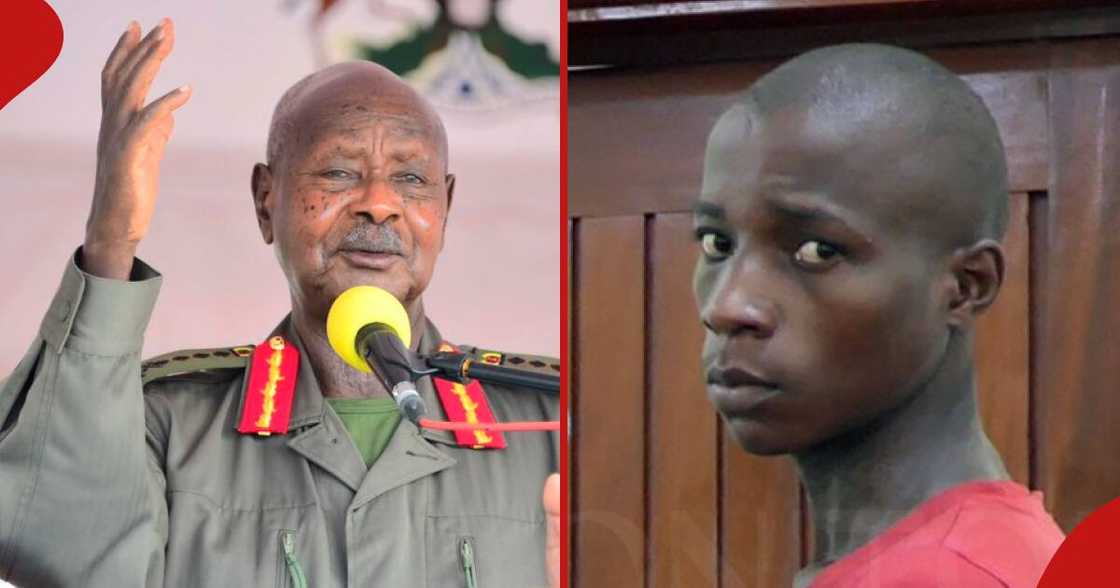Emmanuel Nabugodi, a 21-year-old Ugandan content creator, has been sentenced to 32 months in prison for producing a video deemed insulting to President Yoweri Museveni. Nabugodi, who gained popularity for his comedic TikTok content shared with over 20,000 followers, created a mock trial video where he called for the public flogging of the president, according to BBC reports.
Appearing in court on Monday, Nabugodi pleaded guilty to four charges, including hate speech and spreading malicious information about the president. Chief Magistrate Stellah Maris Amabilis, delivering the sentence, remarked:
> “This court hopes that by the time the convict leaves prison, he would have learnt that abusing people in the name of getting content is bad.”
The magistrate noted that Nabugodi showed no remorse for his actions, emphasizing that the sentence was intended to deter others from using social media to attack individuals, particularly public figures. Nabugodi retains the right to appeal the ruling within 14 days.
Nabugodi’s conviction is based on Uganda’s controversial 2022 amendment to the **Computer Misuse Act**, which criminalizes sharing content that ridicules or demeans individuals. Critics, including human rights organizations, argue that the amendment is a tool for silencing dissent and restricting free expression under Museveni’s government, which has ruled Uganda since 1986.

The US State Department’s 2023 Human Rights Report highlighted concerns over the law’s use to intimidate critics of government policies.
Nabugodi is not the first Ugandan to face harsh penalties for online content:
– In July 2024, TikToker Edward Awebwa was sentenced to six years in prison for similar offenses.
– Three additional individuals are currently awaiting trial over their social media activities.
– In 2022, renowned author Kakwenza Rukirabashaija was charged with “offensive communication” after criticizing Museveni and his son. He later fled to Germany, claiming he had been tortured during a month-long detention.
Rights advocates warn that such cases represent a troubling pattern of curtailing free speech in Uganda, raising questions about the balance between regulating online content and protecting fundamental rights. Nabugodi’s sentence underscores the increasingly restrictive environment for digital expression in the country.
...Never miss an update again! Join our WhatsApp group for the latest news, straight to your phone! (Click Here)




